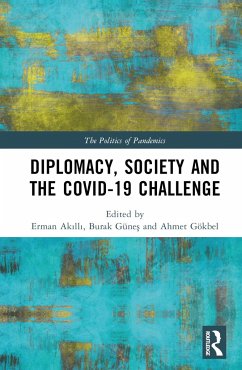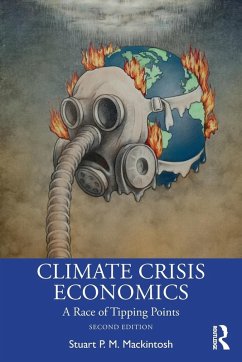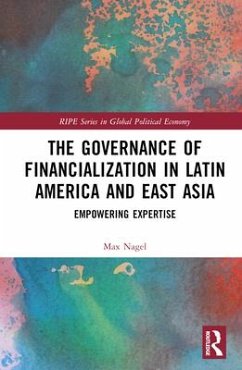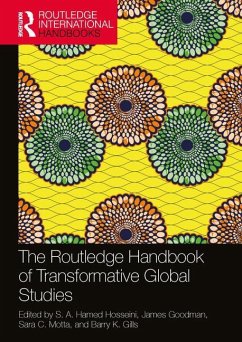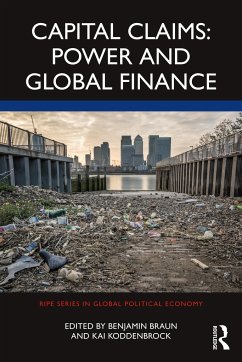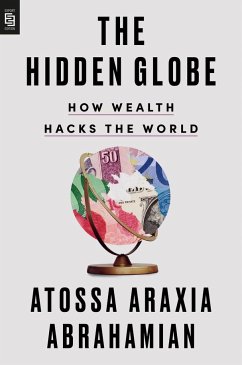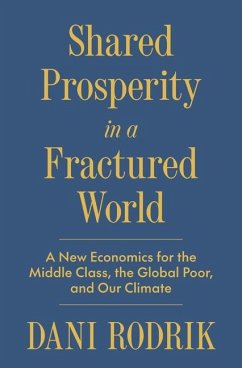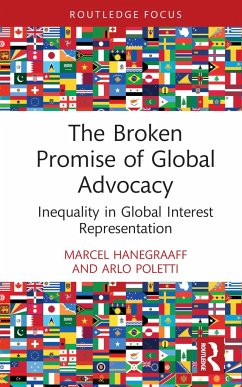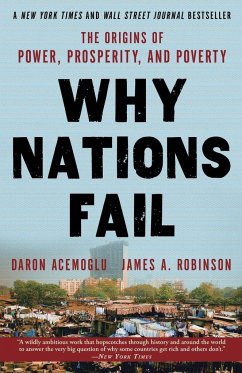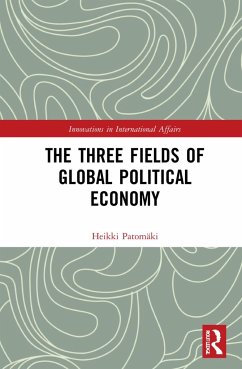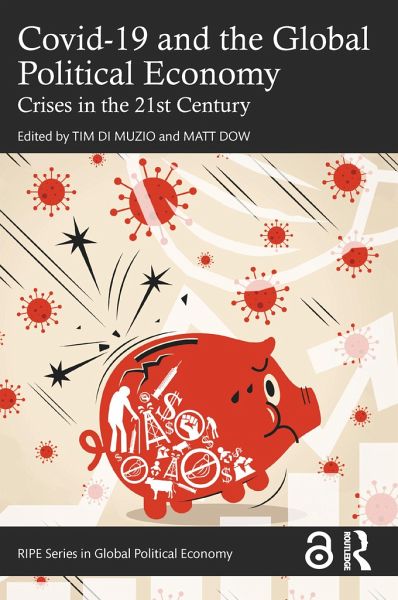
Covid-19 and the Global Political Economy
Crises in the 21st Century
Herausgegeben: Di Muzio, Tim; Dow, Matt
Versandkostenfrei!
Versandfertig in 6-10 Tagen
42,99 €
inkl. MwSt.

PAYBACK Punkte
21 °P sammeln!
Covid-19 and the Global Political Economy investigates and explores how far and in what ways the Covid-19 pandemic is challenging, restructuring, and perhaps remaking aspects of the global political economy.Since the 1970s, neoliberal capitalism has been the guiding principle of global development: fiscal discipline, privatisations, deregulation, the liberalisation of trade and investment regimes, and lower corporate and wealth taxation. But, after Covid-19, will these trends continue, particularly when states are continuing to struggle with overcoming the pandemic and violating one of neolibe...
Covid-19 and the Global Political Economy investigates and explores how far and in what ways the Covid-19 pandemic is challenging, restructuring, and perhaps remaking aspects of the global political economy.
Since the 1970s, neoliberal capitalism has been the guiding principle of global development: fiscal discipline, privatisations, deregulation, the liberalisation of trade and investment regimes, and lower corporate and wealth taxation. But, after Covid-19, will these trends continue, particularly when states are continuing to struggle with overcoming the pandemic and violating one of neoliberalism's key principles: balanced budgets? The pandemic has exposed the fragility of the global political economy, and it can be argued that the intensification of global trade, tourism, and finance over the past 30 years has facilitated the spread of infectious diseases such as Covid-19. Therefore, economies in lockdown, jittery markets, and massive government spending have sparked interest in potentially re-evaluating certain features of the global political economy. This volume brings together leading and upcoming critical scholars in international relations and international political economy to provide novel, timely, and innovative research on how the Covid-19 pandemic is impacting (and will continue to impact) the global economy in important dimensions, including state fiscal policy, monetary policy, the accumulation of debt, health and social reproduction, and the future of austerity and the fate of neoliberalism.
This book will be of great interest to students, scholars, and experts in international relations and international political economy, as well as history, anthropology, political science, sociology, cultural studies, economics, development studies, and human geography.
Chapter 8 of this book is freely available as a downloadable Open Access PDF at http://www.taylorfrancis.com under a Creative Commons Attribution-Non Commercial-No Derivatives (CC-BY-NC-ND) 4.0 license.
Since the 1970s, neoliberal capitalism has been the guiding principle of global development: fiscal discipline, privatisations, deregulation, the liberalisation of trade and investment regimes, and lower corporate and wealth taxation. But, after Covid-19, will these trends continue, particularly when states are continuing to struggle with overcoming the pandemic and violating one of neoliberalism's key principles: balanced budgets? The pandemic has exposed the fragility of the global political economy, and it can be argued that the intensification of global trade, tourism, and finance over the past 30 years has facilitated the spread of infectious diseases such as Covid-19. Therefore, economies in lockdown, jittery markets, and massive government spending have sparked interest in potentially re-evaluating certain features of the global political economy. This volume brings together leading and upcoming critical scholars in international relations and international political economy to provide novel, timely, and innovative research on how the Covid-19 pandemic is impacting (and will continue to impact) the global economy in important dimensions, including state fiscal policy, monetary policy, the accumulation of debt, health and social reproduction, and the future of austerity and the fate of neoliberalism.
This book will be of great interest to students, scholars, and experts in international relations and international political economy, as well as history, anthropology, political science, sociology, cultural studies, economics, development studies, and human geography.
Chapter 8 of this book is freely available as a downloadable Open Access PDF at http://www.taylorfrancis.com under a Creative Commons Attribution-Non Commercial-No Derivatives (CC-BY-NC-ND) 4.0 license.





